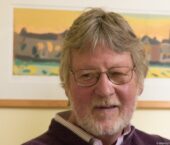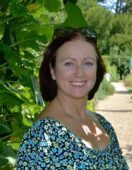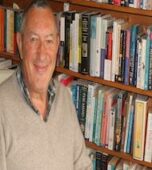Eclectic therapists in Looe, England ENG, United Kingdom GB
We are proud to feature top rated Eclectic therapists in Looe, England, United Kingdom. We encourage you to review each profile to find your best match.
View nearby cities
Well on the Way
Therapist, Reichian Therapy (Character Analysis & Bodywork), Ecotherpay, Family Constellations, Touch for Health Kinesioogy, Natural Healing, Accredited facilitator of the Work that Reconnects
Restorative connections, resourcing and repairing resilience in troubled times, and exploring our responses to times of uncertainty.
I offer a range of skills tailored to individual needs. Embracing all is an Ecotherapy approach that recognises our interconnection with all life; this can involve work in Nature.
42 Years Experience
In-Person Near Looe, ENG
Online in Looe, England
Fiona Grace
Counsellor/Therapist, AdvDipCounselling &Pyschotherapy MBACP
Finding the right counsellor for you is one of the most important parts that will make therapy more effective and successful for you. Its not just about our qualifications but how we connect and work together.
I am a Neurodivergent counsellor and have found this out very late in life, I understand how it feels to just not fit in or be able to conform to the 'norms' of society, to struggle to work out why we are different. How to find ways to learn who you are and love all those 'quirks' that make us different. I understand how this feels and will work with you to help you find your way to manage what you are experiencing.
I have learnt experience with CNBC - childless not by choice and Chronic Pain & Fatigue conditions. With both of these I find it can really be beneficial that I have an understanding of how it feels and not just how it is to study these experiences.
As well as working with Adults I also work as a counsellor with young people in schools, colleges and my private practice.
18 Years Experience
Online in Looe, England
Alexandra Vartosu
Hypnotherapist, Holistic Psychotherapist & Master Life Coach, MC. (Psy.), IAPMC
~ Welcome, I'm Alexandra, a Holistic Psychotherapist and Soulful Life Coach committed to helping you find balance, peace, and purpose in your life.
- With over a decade of experience, I specialize in supporting introspective, growth-oriented individuals and highly sensitive souls to release anxiety, stress, depression, and emotional overwhelm.
- My integrative approach holistically blends evidence-based psychotherapy practices with mindfulness, hypnotherapy, energy healing, and soulful life coaching, creating a compassionate and nurturing environment where you can explore your true self without fear of judgment.
- I truly believe that every person holds the power to create positive, meaningful changes in their life. Together, we will uncover your inherent potential, build emotional resilience, and cultivate a consistent inner calm.
- I am here to walk side by side with you, offering guidance and support as you navigate your journey. My goal is to help you confidently pursue your life's purpose and experience authentic harmony and fulfillment.
- Investing in your first session with me is a powerful step towards your healing and transformation. This session will provide you with invaluable insights and tools, setting the foundation for lasting change and relief.
- I invite you to take this wise step to invest in yourself and unlock the possibility of true inner peace and fulfillment. Book your first session today and begin your journey towards a more balanced and fulfilling life.
Go ahead and reach out! I will walk beside you on this Journey!
~ ACCEPTING NEW CLIENTS!~
11 Years Experience
Online in Looe, England (Online Only)
Birgit Schreiber
Psychologist, PhD and MA in Psychology
I am an optimistic and accepting therapist, enthusiastic about working with clients in collaborative ways, seeking to uncover and understand, and finding new ways of changing your life and living with fullfilling and rewarding relationships, families and friends.
24 Years Experience
Online in Looe, England (Online Only)
John Castleford
Registered Psychotherapist, MA, FRAI
We are all alike, we humans. I like to think we are a troika: we think, we feel, and we do things. When these three are in balance, that's good. When not, well, we literally feel imbalanced.
The original meaning of 'troika' is a chariot pulled by three horses abreast. If one of the three is pulling harder than the others, you can imagine what the result will be. We have all experienced our feelings dominating what we think and what we do. We also know that heightened emotions stop us thinking clearly. And we all know what it is like for our feelings to define our behaviour.
Letting our feelings, especially negative emotions, control our behaviour and our thinking, many therapists traditionally perceive these as flaws. And because they have common characteristics these regularities are put into categories of 'disorders' to be treated, rather than recognising issues like anxiety and low mood are feelings we all experience. Labels are often heuristics, as evidenced by the long-established tradition of therapists to formally focus on what is "wrong" and assume 'disorders' are dysfunctional states that can be 'cured'. Even a cursory glance at the history of psychology -- on which much of the therapy toolkits rely-- reveals the main focus was on the abnormal, the dysfunctional and deviations from normality. The term "Positive psychology" was attributed to Abraham Maslow in his 1954 book "Motivation and Personality" but the ethos of this was developed in earnest by Martin Seligman.
While Psychology is older, Neuroscience is more recent. They are complementary, but currently seem to be on opposite sides of the mountain, boring tunnels to bring them closer together. Neuroscience is also helpful. But just as examining the flow of electrons in the circuitry of a laptop or smart phone doesn't help the observer to construct what the user is seeing or hearing, seeing which bits of the brain light up when stimulated inevitably has limitations. Part of the problem is that our brains never directly experience the world as it is: our brains are locked inside a cranial domain into which all neural inputs are filtered and interpreted.
Science can help but some of the shortcomings can be addressed by philosophical considerations. And although the concept of 'philosophy' seems out of place, abstruse impenetrable discourse did little for its PR, the ancient Greeks regarded philosophy as medicine for the soul. One particular school of philosophy-Stoicism--underpins both Albert Ellis' Rational Emotive Behavioral Therapy and Aaron Beck's CBT, (cognitive behavioural therapy). But very few CBT therapists are aware of its conceptual foundations and the debt owed to Stoicism. Interestingly, both were long-lived: Albert Ellis had 93 trips around the sun and Aaron Beck reached the milestone of 100 years.
Much of the anxiety and worries we experience have long been scrutinised by existential philosophers. But sadly, few of their writings are fun to read. Essentially, our existence is subject to a continuing cycle of conflicts. We all know life embodies happiness and unhappiness; success and failure; sadness and joy; conflicts can be hard to resolve.
For example, at a rational level we know we are mortal and have a finite lifetime. We all die. Sometimes we die three times; once when the body stops functioning, again when we are buried or cremated; and finally when our name is mentioned for the very last time. But although death is a reality, we also have a very strong instinct to survive. We want to live. And that very powerful feeling inevitably conflicts with the rational knowledge of our immortality. Some religions have an answer to that existential conundrum, but we are concerned with the here and now.
However, trying to 'understand' these 'disorders' can be counter-productive. Spending time focusing on the pain of the past keeps the pain very much in the present. Recalling past hurt generates the same feelings in the present as in the original episode.
Most people who feel overly anxious, or fearful, or unfulfilled, or hurt, or deemed 'broken' simply want to feel better. Keeping focused on past hurt isn't the best way to feel better from now on.
Too many therapists are trained in one particular tradition, and then spend their time looking for people to "fix". I understand there are over 300 different named therapies. Which seems to parallel the plethora of different religions and religious sects. (In passing, a nod of the head to those who helped me understand the meaning of 'plethora'. It means a lot).
Not only are contemporary therapies perpetually tweaked and reinvented, most were developed in the Western world and focus mainly on the individual. However, many non-Western cultures see the individuals as an integral part of other social units, particularly the family and the workplace.
My starting point is how you want to feel from now on. And what's the best way to help you get from where you are now to where you want to be?
I'm unashamedly eclectic. I use a blend of the very latest findings from neuroscience and psychology (to inform us how the brain works); I use my background in anthropology and human evolution to help understand how a brain that evolved 200,000 years ago often finds it hard to function in the complexities of the modern world.
As our conscious minds can only think one thought at a time (multitasking being a bit a myth), we can make good use of that. A good starting point is focusing on high points in our life; by recalling those we don't just bring great memories to mind, we also recreate those wonderful feelings we felt at that time. So, just as we do our best work when we are at the top of your game, focusing on positive rather than negative feelings from the past is a great place to begin work.
Just ask yourself if you make your best decisions when you are feeling low or when you are elated: heightened emotions (positive or negative) can adversely affect our cognition. As you will know when you have been furiously angry. Or when you have been so buoyed up that you feel all but unstoppable.
Most people aren't 'broken'. But we may feel like it. From time to time we may well feel side-lined or undermined, held back, stuck, drained, numb, or otherwise constrained by a mismatch between expectations/aspirations and how we feel. The logical brain doesn't always align with emotions and feelings.
Maybe external circumstances brought about persistent low mood. Perhaps your self-esteem took a nose-dive, or maybe you just find it hard to cope, or don't feel you're in control anymore. Our thoughts often control us, and determine our feelings--and our behaviour often depends on how we feel. Our thoughts don't just control us in the moment--long term they often prevent us from becoming the best version of who we could/should be.
Are your thoughts stopping you from being the best version of who you could be? Let's loop back to philosophy. And in particular a school of philosophy developed over 2,000 years ago. The ethos of Stoicism addresses a fundamental question: how can you get the most out of life no matter what your circumstances?
One of the key foundational principles that helps us navigate that most profound question is very simple: some things are up to us, and some things are not. So where then should we focus our energies? On things we can control, and which are up to us. And not on things beyond our control. Obviously we cannot influence the weather. We can only react to it. And that is a major clue: we can control our reactions and how we behave. Maybe even our thinking. Perhaps.
16 Years Experience
Online in Looe, England




